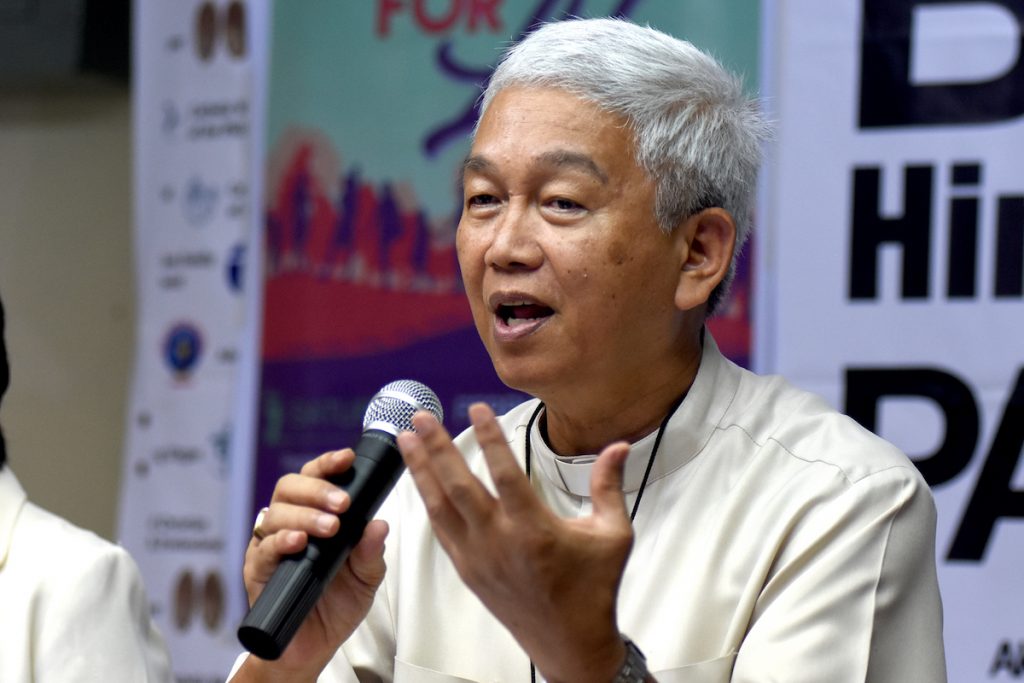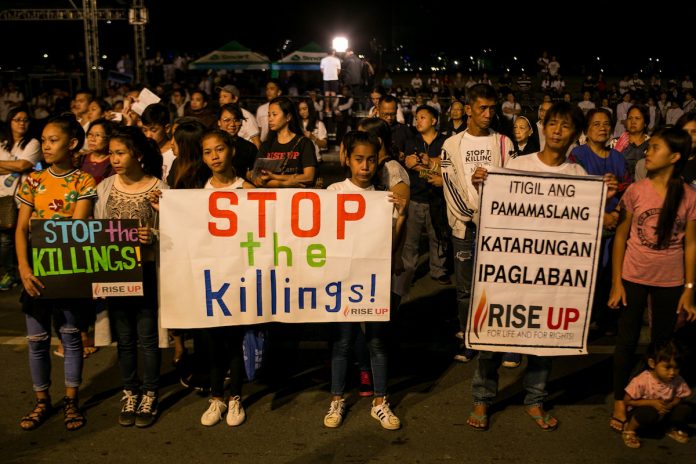With Bishop Broderick Pabillo as apostolic administrator of the Manila Archdiocese, the Filipino faithful can rest assured that the Church is there to help protect their right to life, whether in the pulpit or out in their communities.
Bishop Pabillo is part of the clergy in the Philippines who have refused to let the attacks by President Rodrigo Duterte against their persons as well as against Church doctrines drive them into passivity and inaction.
Thus, it is not surprising at all that the prelate has called on the Filipino youth to take the lead in opposing what he called the “anti-life” direction of the Philippine government.
Bishop Pabillo took the helm of the archdiocese after Cardinal Luis Antonio Tagle was assigned to higher responsibilities in the Vatican by Pope Francis.
The “anti-life” drift of the current political dispensation, the prelate observed, is well in evidence in the government’s crackdown on illegal drugs, continuing environmental degradation, and proposed measures on the reimposition of the death penalty and legalization of divorce and same sex unions.
The war on drugs, environmental degradation and the proposed reimposition of the death penalty really pose a distinct and grave threat to human lives, while the legalization of divorce and same sex-unions will adversely affect social cohesion and go against the constitutional mandate for the state to recognize the sanctity of family life and to protect and strengthen the family as a basic autonomous social institution.
Bishop Pabillo issued the call for the youth to take resolute action against anti-life trends under the current political dispensation during last month’s Walk for Life event in Quezon City.
In urging the youth to take a pro-active role in addressing social issues, the bishop is following the example of the late Cardinal Jaime Sin who was an outspoken critic of martial law, which was imposed by the Marcos regime starting in 1972. The late prelate urged Filipinos to support the popular uprising against Marcos that culminated in the People Power revolt in 1986. The uprising restored democracy in the Philippines after 14 years of dictatorial rule.
The bishop has taken the right step in mobilizing the Filipino youth to take their destiny in their own hands. After all, it is they who will take over the reins of government, the private sector and civil society — the organized citizenry — in due time.
For the outspoken prelate, young people should be at the core of the fight for life because they bring conviction to it.
“We should speak now because once laws are in place, it would be hard to overturn them, and many people will be affected, especially the youth. At this time, everyone of us has a chance to speak, especially in social media,” Bishop Pabillo said.
“I wish that more young people would come to our Walk for Life because they will really suffer the impact of these issues,” he added.

Organized by the Council of the Laity in the Philippines, the Walk for Life was started in 2017 following the orgy of drug-related killings in the country since 2016.
This year, simultaneous Walks for Life were also held in the archdioceses of Cebu, Cagayan de Oro, Palo and Lingayen-Dagupan. Hundreds of lay people also gathered for the same event in Tarlac, Borongan, Gumaca, and other dioceses.
The laity in the Philippines is correct in initiating the Walk for Life as a new venue for getting more people to make their voices heard against creeping authoritarianism under the Duterte administration.
The Walk for Life is an innovative form of civic engagement that is needed at this juncture, since the political leadership appears bent on continuing its bloody war on illegal drugs with little regard for the sanctity of human life and established legal and judicial processes.
We know from experience that authoritarianism brings in its wake utter contempt for the rule of law, the elimination of all opposition, and wanton disregard for freedoms guaranteed by the Constitution, including freedom of speech, freedom of expression, freedom of the press and freedom of assembly to ventilate grievances. All these are essential to the preservation of democratic governance in the country.
All these are essential to the preservation of democratic governance in the country.
For nearly three and-a-half years, Filipinos have had to endure the gradual diminution of these freedoms through various means, not the least of all threats and intimidation of critics coming from no less than the highest elected official of the land, with the Church among those targeted for vitriol. This situation should not go unchallenged by those who stand to inherit this sad state of affairs: the youth.
Ernesto M. Hilario writes on political and social justice issues for various publications in the Philippines. The views and opinions expressed in this article are those of the author and do not necessarily reflect the official editorial position of LiCAS.news.









